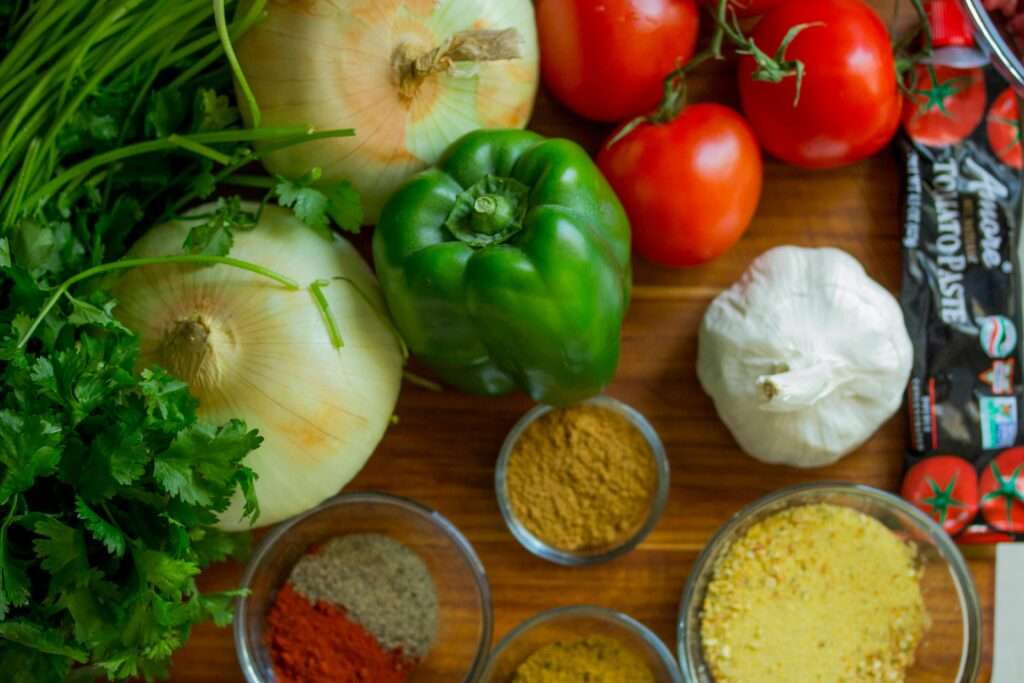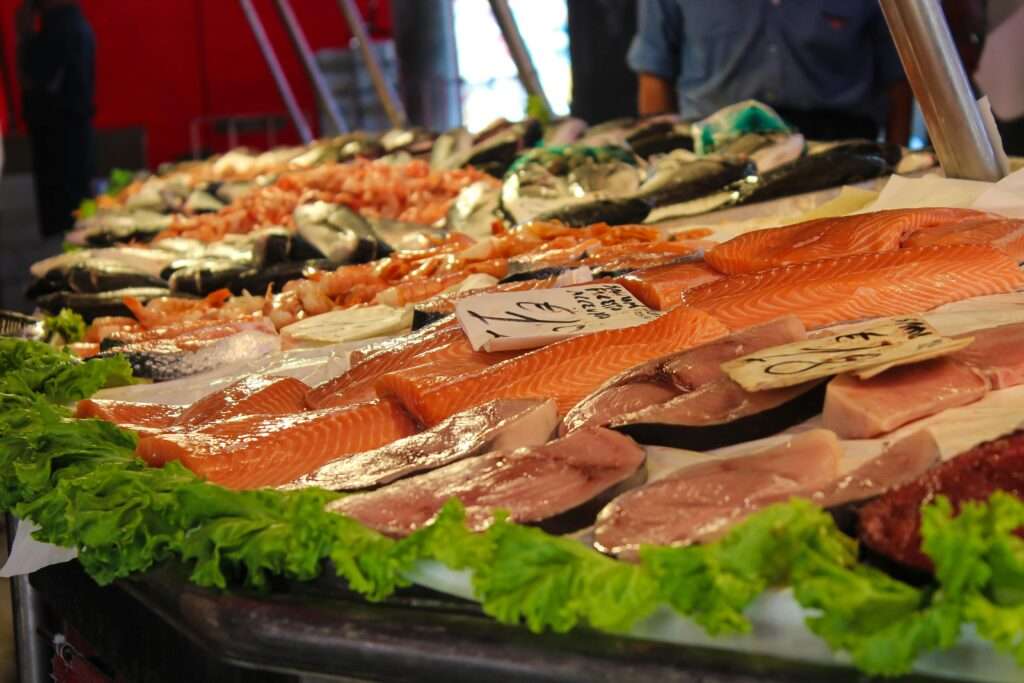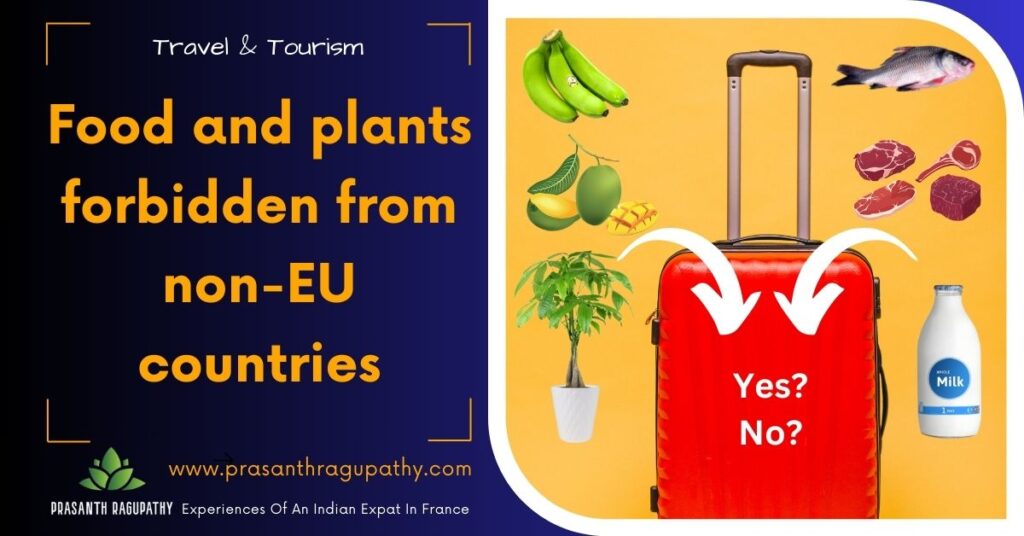Traveling to the European Union (EU) comes with a variety of rules and regulations, particularly when it comes to bringing food products in your baggage. The EU has strict guidelines to prevent the spread of diseases and pests, which can impact local agriculture and ecosystems.
This article provides a concise overview of the types of plant and animal products that are permitted, helping you avoid any unpleasant surprises at customs and ensuring a smooth journey. Whether you’re carrying a small snack or specialty items from home, understanding these regulations is essential for all travelers.
Good to Know: Check the websites of the respective airlines for any specific interdictions. Avoid carrying items resembling a white powder. Example: Powdered dry coconut, rice powder, Maida, etc.
Which plants and plant products are authorized for entry into the EU?

| Products concerned | Non-EU travellers (including UK) |
| Bananas, durians, coconut, pineapple and dates | Allowed without phytosanitary certificate and without any limit on quantity |
| Plants and plant products (including potatoes for consumption) | Allowed: – on presentation of a phytosanitary certificate issued by the third country of origin, without limitation of quantity – and for plants intended for planting, health control on arrival in the territory of the European Union |
| Fruits and Vegetables | |
| Flowers and flower buds | |
| Fresh and frozen fruit | |
| Fresh or frozen root vegetables (yam, cassava, ginger, etc.) | |
| Soil and other substrates | Not allowed |
| Vines and citrus fruit plants | |
| Potatoes for planting purposes |
Which animal products are prohibited and which are allowed to enter the EU?

| Products concerned | Non-EU travellers (including UK) |
| Meat (from a butchery shop or wild) | Not allowed |
| Meat products (foie gras, pâté, sausage) | |
| Milk | |
| Milk products (yoghurt, cheese, butter) | |
| Powdered milk for infants, infant foods & special foods required for medical reasons | Allowed up to 2kg |
| Fresh or eviscerated fishery products or processed fishery products (fresh or dried fish, shellfish, crustaceans) | Allowed up to 20kg |
| Other animal products (honey, snails) | Allowed up to 2kg |
| Pet food required for medical reasons | Allowed up to 2kg |
Sources & References
- Customs: What products are prohibited from being brought to France? servicepublic.fr
- Quelles denrées alimentaires et quels végétaux pouvez-vous transporter dans vos bagages ? douane.gouv.fr
Support This Blog!
If you’ve found my articles helpful, interesting or saving your time and you want to say thanks, a cup of coffee is very much appreciated!. It helps in running this website free for the readers.


